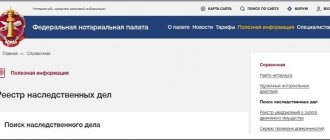If you ask a person who he considers his close relatives, he will most likely name those with whom he communicates most closely in everyday life. And those with whom he feels spiritual closeness.
This list may include cousins or half-brothers and sisters, a stepfather who raised the child as his own, a beloved great-grandmother, and, of course, a husband or wife, if people live in a happy marriage. You can't argue with that.
But the legal field, unlike private life, presupposes a different principle for determining close kinship. And a person may unexpectedly find out that his idea of close kinship strikingly does not coincide with the opinion of the law on this matter.
Since the definition of “close relatives” is often found in various legislative acts, it is important to understand who is or is not such from the point of view of the law. Confirming or denying a close relationship with a particular person is not required as rarely as it might seem at first glance.
This may be necessary:
- If a citizen marries a person with the same last name
- In the process of deprivation or restriction of parental rights
- When receiving an inheritance or a large gift (close relatives are either exempt from paying duties or taxes, or pay them in a smaller amount)
- When drawing up certain types of contracts
- In the event of housing disputes, moving into an apartment or eviction from it
- When applying for various benefits and payments, both at the place of work and in the field of social insurance
- And in a number of other cases
For example, the order of inheritance without a will depends on the degree of consanguinity. On the other hand, if the testator made a will in which he left everything to “close relatives”, but did not indicate specific names, his spouse may be left without an inheritance, since from the point of view of the law, he is not one.
To avoid unpleasant confusion associated with the legal definition of close kinship, you should understand what it means by family, labor, housing, administrative and criminal law of the Russian Federation.
This article will be devoted to this topic. We will try to cover the topic of close kinship in the field of legal relations as fully as possible.
Labor Code: leave upon death of a close relative
Death is always unexpected. The legislation of the Russian Federation provides for the opportunity for family members to organize the funeral of the deceased and experience grief by taking a temporary break from work. Based on Art. 128 of the Labor Code of the Russian Federation, an employee has the right to unpaid leave in connection with the death of a close relative. Time off for a funeral according to the Labor Code can last up to 5 calendar days inclusive.
Read more about other unscheduled unpaid leaves that an employee can use in this material.
As you may have noticed, in Art. 128 of the Labor Code of the Russian Federation refers specifically to close relatives. Who belongs to them?
The Labor Code does not clearly define the concept of “close relative”. In this matter, you should refer to another code - the Family Code. In Art. 14 of the RF IC provides a list of close relatives:
- parents;
- children;
- Grandmothers and grandfathers;
- grandchildren;
- siblings who have one or both common parents.
If an employee from this list dies, the employer cannot deny a subordinate leave due to the death of a relative.
IMPORTANT! Adopted family members and adoptive parents in the list of close relatives from Art. 14 RF IC no. They are subject to another norm of legislation - the adoption procedure leads to the fact that adopted children lose both their rights and obligations in relation to relatives by blood, and the family and relatives of the adoptive parents and the adopted children themselves are equated to blood relatives (Article 137 of the RF IC) . Thus, if one of the participants in the adoption procedure has died, then the other party also has the right to receive leave to attend the funeral of a close relative.
Find out whether an employer can refuse to provide leave due to the death of a stepfather in the material from ConsultantPlus. Get trial access to the system and read the answer from a K+ expert for free.
Legislative acts of the Russian Federation do not contain restrictions on the frequency of management granting leave for a funeral: if a worker in the current calendar year suffered a loss more than once, but several times, the employer gives time off in each case.
Property and family law
Oddly enough, the legislation does not consider relatives as objects of family law. Consequently, they do not have the same privileges and responsibilities as relatives.
There are a number of nuances:
- Judges cannot be related to the defendants.
- Persons in property up to the fourth line cannot marry.
- Relatives may become objects of family law in the case when it comes to the payment of alimony by a stepdaughter/stepson to a stepfather or stepmother. However, each such case requires individual consideration.
Leave for funerals of relatives at the initiative of the employer
But what if an employee’s relative who is not on the list of relatives, such as a mother-in-law or uncle, dies? The employer is not obliged to provide time off in this case, but he can do so on his own initiative. Record a list of those family members whose death is grounds for the company to place an employee on unpaid leave. And document the duration of such additional leave. This can be done in a local regulatory act, for example, the Regulations on Vacations.
Example of wording.
Fantasia LLC provides additional leave without pay for employees in the following cases:
- death of close relatives - for a period of up to 5 calendar days inclusive (Article 128 of the Labor Code of the Russian Federation);
- death of relatives who are not classified as close: uncles and aunts, mother-in-law, father-in-law, father-in-law, mother-in-law, nephews - for a period of up to 5 calendar days inclusive.
Leave is given on the basis of an employee’s application addressed to the director, a copy of the death certificate of a relative and documents confirming relationship with the deceased (marriage certificate and birth certificate of the spouse - in the event of the death of a father-in-law, mother-in-law, father-in-law, mother-in-law, birth certificate - in case of death of children, parents, brothers and sisters, uncle/aunt and their children, marriage certificate - in case of death of spouse.
What other internal regulations on personnel records management should an organization have - read here.
ATTENTION! Resolution of the Federal Antimonopoly Service of the Moscow District dated September 29, 2008 No. KA-A40/6198-08-O contains the conclusion: family members must include not only the employee’s immediate parents, but also the parents of his spouse. The conclusion is based on the fact that there is no corresponding restriction in the RF IC - the family must be considered as a single whole and include both the husband’s parents and the wife’s parents. Based on this resolution, an employee can demand from management additional permission to attend the funeral of not only his parents, but also the parents of his spouse.
Some organizations enter into industry regulations governing the relationship between employers and workers in certain areas of activity. Such industry regulations provide additional support to employees on the occasion of the funeral of loved ones.
For a more detailed list of industry-specific additional agreements and conditions for granting additional permission for funerals, please follow the link.
Hoax of A. S. Pushkin
In conclusion, it is worth considering a short story by Alexander Pushkin, in which he humorously examined the properties of the legendary French heroine Joan of Arc and her distant descendant.
This literary hoax is called "The Last of the Relatives of Joan of Arc." It briefly tells how a relative of the late Jeanne's brother's wife challenged Voltaire himself to a duel for his satirical poem "The Virgin of Orleans" (in this work, the great philosopher rather caustically ridiculed Jeanne and her feat, and in the finale even hinted at d'sexual relations) Ark with one of her loyal followers).
In Pushkin’s story, the fearless Voltaire chickened out and wrote to Jeanne’s relative that in fact he was old and weak and was not the author of that seditious work.
Sample application for the funeral of a relative
Leave on the occasion of the death of close relatives is granted on request - that is, the employee must notify the manager of the need to leave for the funeral of a family member. This is done by submitting an application for a funeral - you can download a sample of it from the link.
The application must contain the following information:
- information about the manager - indicated in the header of the application: title of position, full name in the dative case;
- who provides the application - that is, information about the employee: “from <position Full Name” in the genitive case;
- the text of the request itself: “In connection with the death of <family member Full Name>, I ask you, in accordance with Article 128 of the Labor Code of the Russian Federation, to grant me leave without pay from <date> for <number of days, no more 5> calendar days. I am attaching a copy of the death certificate to the application.”
- date of writing the application and signature with transcript.
If leave is given for the funeral of a loved one who does not belong to the category of relatives, then the text of such an application will not contain any mention of an article of the Labor Code of the Russian Federation. If the company’s local regulations have clear rules for providing leave at one’s own expense in the event of the death of non-close relatives, refer to the corresponding paragraph. If there is no such clause, then the employee can indicate the wording “due to family circumstances.”
You can also download a sample application for leave for the funeral of non-close relatives on our website.
We recommend that you attach documents to your application confirming the death of a family member and the degree of relationship itself - copies of a death certificate, marriage/birth certificate, etc.
Features of buying and selling property
A real estate purchase and sale agreement is often drawn up between close relatives. The transaction is carried out on a reimbursable basis in any case. However, the fact of kinship does not in any way affect the full tax exemption. Currently, the seller is obligated to pay 13% income tax, depending on the value of the written agreement between the participants.
The obligation of a close relative acting as an apartment seller to pay personal income tax disappears provided that:
- the real estate was owned by the seller for 3 years before the sale, if its privatization took place before January 1, 2016. If the seller became the owner after the above time, then at least 5 years must pass;
- The price of the apartment is set at less than a million rubles.
If the living space of a close relative is valued at more than a million, then as compensation the seller can issue a tax deduction from the difference received. The buyer, for natural reasons, is not able to do the same.
If the price of an apartment is deliberately understated, then if this fact is discovered, the tax office may oblige you to pay the missing part of the money, as well as fine the person responsible for fraud. It is worth noting that if the real estate being sold is the joint property of two spouses, who are considered close relatives in a certain sense, then the endorsed consent of the wife/husband to the transaction will be required.
Time off on the occasion of the death of close relatives is paid or arranged at your own expense
An application for leave upon the death of a close relative serves as the basis for issuing an order for leave without pay. Issue the order on the State Statistics Service form T-6 or in a form developed independently by the company’s personnel officer or accountant, taking into account the requirements for the details established by law (clause 2 of Article 9 of the Law “On Accounting” dated December 6, 2011 No. 402-FZ). Introduce the order to the employee against signature.
Read about the procedure for filling out the State Statistics Service form T-6 here.
Since time off for a funeral is unpaid, the accountant does not draw up a note calculating the provision of leave.
In the time sheet, the accountant indicates the code:
- “OZ” or 17 - if time off is provided for the funeral of a family member in accordance with the Labor Code of the Russian Federation;
- “BEFORE” or 16 - if the manager allows time off due to the death of non-close relatives.
Read more about the procedure for maintaining timesheets in the material “Unified Form No. T-13 - Form and Sample.”
There is no need to include time off for funerals in your vacation schedule. But in the T-2 card or a similar form developed by the company’s human resources department/accounting department, information about leave at one’s own expense is recorded.
ConsultantPlus experts answered a number of questions about granting retroactive leave.
Find out an expert opinion on the employer's actions in such a situation by getting trial access to the system for free.
Governmental support
Upon the death of a relative, a person is also provided with state financial support. Social benefits are paid to the person who took responsibility for the funeral. You can receive funds through your employer or social security authorities. Social benefits are not taxed. Insurance premiums are also not deducted from them. To receive funds, you must contact your employer with an application within 6 months from the date of death.
Taxation
Financial assistance to an employee will not be subject to income tax. This rule is established by paragraph 8 of Article 217 of the Tax Code of the Russian Federation. However, this only applies to the death of close relatives: children, parents, spouses. In all other cases, income tax is not paid only if the deceased relative lived in the same apartment as the employee.
Insurance premiums are also not deducted from financial assistance. This is stipulated by Federal Law No. 212 dated July 24, 2009. Again, this only applies to deaths of spouses, children and parents. If, for example, a grandmother dies, it is recommended to pay insurance premiums.
Fine for failure to provide leave due to the death of a relative
Sending an employee on leave at his own expense in the event of the death of family members is the direct responsibility of the employer, established by Art. 128 Labor Code of the Russian Federation. Violation of this obligation is fraught with a fine for the company or merchant in accordance with Part 1 of Art. 5.27 Code of Administrative Offences:
- for a legal entity - from 30,000 to 50,000 rubles;
- for an official or entrepreneur - from 1,000 to 5,000 rubles.
If you repeatedly violate labor laws, the fines increase:
- for a legal entity - up to 70,000 rubles;
- for an official or businessman - up to 20,000 rubles. or disqualification of an official for a period of up to 3 years (part 4 of article 5.27 of the Administrative Code).
Read about the employer’s responsibility to his subordinates in the material “Art. 22 of the Labor Code of the Russian Federation: questions and answers.”
Who are the in-laws?
It is not always clear who in-laws are according to the law? This category of persons includes relatives of the spouse. The correctness of the definition of this category of persons is important in determining the right and possibility of working together in government positions.
Expert opinion
Irina Vasilyeva
Civil law expert
Restrictions in the fight against corruption are imposed not only on relatives, but also on in-laws.
Dear readers! To solve your problem right now, get a free consultation
— contact the on-duty lawyer in the online chat on the right or call:
+7
— Moscow and region.
+7
— St. Petersburg and region.
8
- Other regions of the Russian Federation
You will not need to waste your time and nerves
- an experienced lawyer will take care of solving all your problems!








